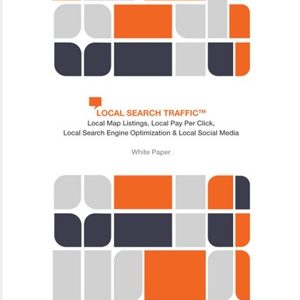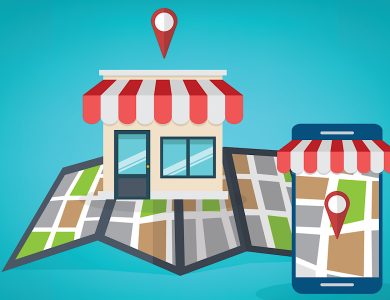
Content marketing, especially in its digital form, has become an essential tool in the modern marketer’s arsenal.
While many larger corporations have swiftly adopted content marketing strategies, smaller local businesses frequently overlook its potential or doubt its relevance to their operations. This hesitance often stems from the considerable effort and time traditionally required to produce various content forms, including blogs, social media posts, podcasts, and videos.
Small business owners and managers might question the value of content and its potential return on investment. They may wonder, "Who has the time or desire to read, watch, or listen to my content?" However, as consumer behavior and search engine algorithms evolve, content marketing, when executed correctly and with purpose, can become an indispensable aspect of a local business’s success. Unique, relevant, and entertaining content can distinguish a local business from its competitors, both small and large.
Let’s explore why a content marketing strategy is crucial for local businesses and outline practical tips on implementing effective content marketing strategies to boost brand awareness, establish online authority, engage customers, and drive business growth.
Why Do Local Businesses Need Content Marketing?
No matter the size of a business, content marketing can positively influence common business drivers for those willing and able to utilize it.
Establishing Local Authority
Content marketing allows local businesses to position themselves as authorities in their industries and communities. By creating valuable and informative content, businesses can showcase their expertise, address common pain points, and provide solutions to their customers’ pressing problems. When consumers reference helpful content from a local business, they are more likely to trust and choose that business over competitors who do not provide similar value. Establishing authority requires consistently creating high-quality content that customers want to read, like, and share. Although it takes time and patience to build authority, the payoff is substantial for businesses that become the go-to source for customer answers.
Enhancing Online Visibility
Organic search visibility is crucial for any business’s long-term success. Small business owners recognize the importance of appearing in search results when customers search for their services. Content marketing plays a crucial role in search engine optimization (SEO) as Google and other search engines reward Experience, Expertise, Authority, and Trustworthiness (E-E-A-T). By producing high-quality, keyword-rich content that resonates with their target audience, local businesses can improve their search engine rankings and visibility in Google Maps results. It’s arguable that creating and posting content to a Google Business Profile (GBP) is as important, if not more so, than any other type of content marketing a local business can undertake. Google rewards businesses that actively engage with their audience through their GBP.
Driving Organic Traffic and Conversion
Organic search is a valuable traffic source for any local business because it tends to convert at a higher rate than traffic from other channels. Through content marketing efforts, businesses can target relevant keywords, address customer needs, build authority, enhance visibility, and drive organic traffic to their website and Google Business Profile.
Building Customer Relationships
Effective content marketing enables local businesses to engage with and build lasting relationships with their customers. Social media posts, blog articles, email newsletters, and videos can foster a sense of community and encourage two-way communication. Responding to customer comments, questions, and reviews demonstrates that a business cares about its customers, fostering loyalty and encouraging repeat business. Customer testimonials and case studies highlight partner successes, build authority, and establish trust, making happy customers feel special by putting them in the spotlight.
Nurturing the Sales Funnel
Content marketing helps businesses guide potential customers through the sales funnel. By tailoring content to different stages of the buyer’s journey, businesses can attract leads, nurture them with informative content when needed, and eventually convert them into paying customers. Educational content, product comparisons, and customer success stories can move prospects closer to making a purchase decision by addressing their questions at each stage.
How Should Local Businesses Implement Content Marketing?
Understanding the "why" of content marketing for small businesses, the question often becomes "how" to implement effective content marketing strategies on top of daily business operations.
Know and Build Your Audience
Understanding the target audience is the first step in any successful content marketing strategy. Local business owners or their employees should identify their ideal customers’ preferences, pain points, interests, and digital behaviors. This information guides the creation of content that resonates with the intended audience, leading to higher engagement and conversions. Knowing where customers tend to "live" or visit online helps build an audience that content can target. Content shared into a void will not be read, liked, or shared.
Develop a Content Plan
Consistency is key in content marketing. Local businesses should establish a well-thought-out content plan, including a content calendar, an outline of the types of content to produce, the platforms to share on, and a target publishing schedule. Planning content in advance keeps the business organized and consistent in its messaging.
Create Unique Content
With the increasing importance of content marketing, local businesses must differentiate their content from others. Despite the content explosion, every business should focus on sharing its stories and perspectives. The key to topical authority is expertise-backed advice, opinion, and experience. Each piece of content should include the business’s unique perspective.
Diversify Content Formats
Different people prefer various content formats. To cater to a broader audience, local businesses should diversify content types, including blog posts, case studies, videos, podcasts, and more. This variety keeps the audience engaged and interested in the business’s offerings.
Distribute Content via GBP
A Google Business Profile (GBP) is crucial for visibility and content distribution. Any digital content created should be shared as a GBP post, including a strong call to action linking back to the content.
Leverage Social Media
Social media platforms can be powerful tools for content distribution and customer engagement for local businesses. This includes identifying, following, and supporting other local businesses and organizations to boost visibility. Partnering with local influencers or complementary businesses can help expand reach and credibility. Collaborations introduce the business to new demographics, driving more foot traffic and online interactions. Social media effectively builds community locally, extending the physical community. Sharing authoritative or entertaining content, engaging with followers, sharing user-generated content, and running social media contests or promotions can boost brand awareness and foster customer loyalty.
Monitor and Analyze Performance
Monitoring performance is crucial for continuous improvement and understanding return on investment (ROI). Local businesses should track key performance indicators (KPIs) such as website (especially organic) traffic, conversion rates, social media engagement, and customer feedback. This data provides valuable insights into what content resonates with the target audience and areas needing improvement.
Get Help as Needed
The challenge for many local businesses considering content or digital marketing is the time, effort, and expertise required to plan and execute these strategies. Fortunately, the rise of content marketing tools and experienced digital agency support can help. Local businesses should leverage available tools and people to maximize opportunities, ensuring they add their unique perspective whenever possible.
In Conclusion
Content marketing is essential for local businesses to thrive in today’s competitive digital marketplace. By focusing on creating valuable, relevant, and engaging content, local businesses can establish themselves as local industry authorities, increase visibility, drive organic traffic, build lasting customer relationships, and achieve sustainable business growth. Implementing a successful content marketing strategy requires a clear understanding of the target audience, creating unique content, consistent effort, and a willingness to adapt and improve based on performance data. By embracing content marketing and leveraging its potential, local businesses can effectively navigate the digital landscape and secure a strong foothold in their respective markets.
More resources:
- Why Businesses Turn to SEO in All Economic Climates
- How Can Small Local Service Businesses Use AI to Improve Their Digital Marketing?
- Local SEO: The Definitive Guide to Improve Your Local Search Rankings



